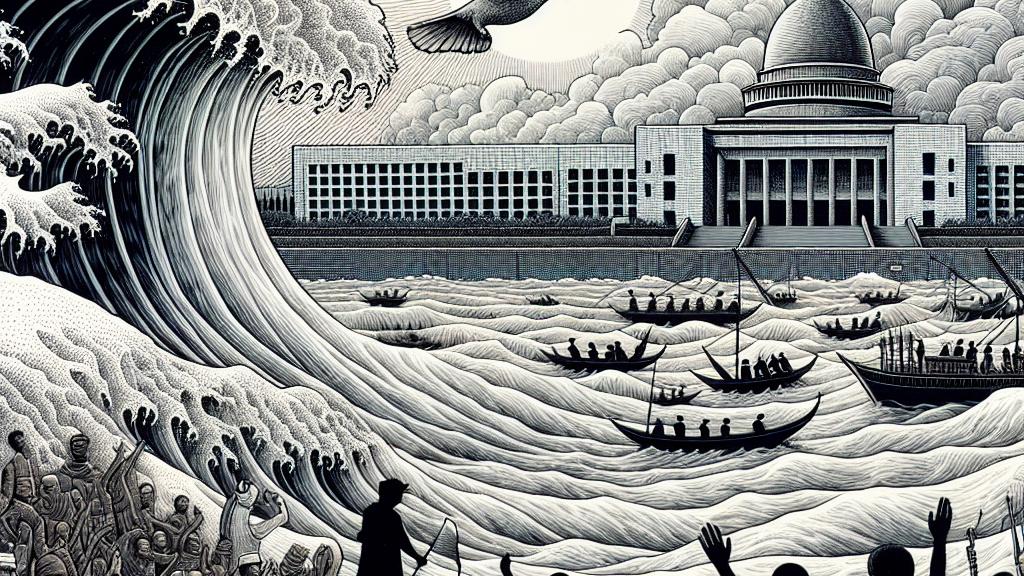UN Chief's Call for Inclusive Elections Sparks Hope in Bangladesh's Turbulent Waters
Overview
- U.N. Secretary-General Antonio Guterres advocates for inclusivity in Bangladesh's upcoming elections.
- Escalating protests underline public discontent and demand for government accountability.
- Interim government seeks to foster dialogue and unity among diverse community groups.

A Call for Inclusivity
In a pivotal moment for Bangladesh's political landscape, U.N. Secretary-General Antonio Guterres urged for inclusive parliamentary elections in a statement on August 12, 2024. This call came amid significant unrest following Prime Minister Sheikh Hasina’s resignation amidst rising protests led primarily by students and civil society groups demanding a more inclusive governance structure. Guterres' emphasis on the inclusion of women, youth, and marginalized communities highlights the critical role that diverse voices must play in shaping the electoral process. Such attention to inclusivity not only aims to restore faith in the electoral system but also serves as a foundation for rebuilding stability and democratic principles in a nation that has faced years of political strife.
Political Unrest and Ongoing Protests
Currently, Bangladesh is engulfed in a maelstrom of political turmoil characterized by fierce protests and demonstrations against the Awami League government, led by Hasina. The opposition, particularly the Bangladesh Nationalist Party (BNP), has intensified its campaign calling for a neutral interim government, asserting that credible elections cannot occur under Hasina's leadership, which they accuse of electoral malpractices in previous elections. With inflation skyrocketing and the cost of living climbing, public frustration has spilled into the streets, leading to some of the largest opposition rallies seen in years. Recent confrontations have resulted in violence, raising concerns about the potential for civil unrest, yet these protests reflect a burgeoning demand for accountability and reform in governance, as citizens fight for their voices to be heard in the national dialogue.
Efforts Towards Dialogues and Solutions
Amidst this chaos, the interim government, led by notable figures like Nobel laureate Muhammad Yunus, has initiated dialogues aimed at bridging divides within the society. Yunus’s visit to a prominent Hindu temple illustrated an inclusive approach in engaging various ethnic and religious communities, reassuring minorities about their safety and encouraging open discussions. This proactive measure not only hopes to ease tensions but also fosters an environment of mutual understanding and communal harmony. Guterres' call for inclusivity, when met with genuine efforts from the interim government to engage all sectors of society, presents an opportunity for Bangladesh to emerge from its political turmoil. With continued commitment to dialogue and democratic practices, there is a path forward that could lead to a more unified and peaceful Bangladesh, empowering all its citizens.

Loading...